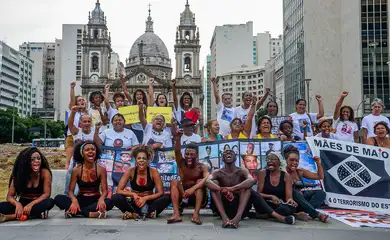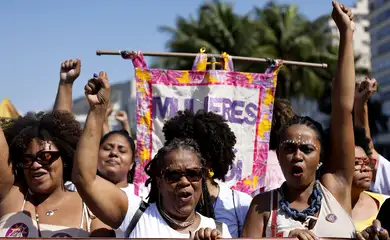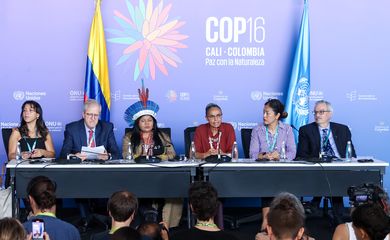Brazil proposes new SDG focused on ethnic-racial equality

The Brazilian government has announced its voluntary adoption of an 18th Sustainable Development Goal (SDG) focused on ethnic-racial equality. This goal will be integrated into the United Nations (UN) 2030 Agenda, which currently includes 17 official SDGs.

The creation of a new global goal is justified by the need to tackle structural racism, considered to be one of the world's main development problems. This initiative aims to foster inclusive, sustainable development for people of all races and ethnicities.
The launch of Brazil's voluntary SDG took place on Friday (Nov. 15) as part of the G20 Social program in Rio de Janeiro.
According to the organizers, the 2030 Agenda should be viewed as a social and political tool in the fight against inequalities, driving lasting change and transformation.
“We need to think about building a world that respects us, that doesn't rape or kill us. That's why resistance is so important. We must fight religious intolerance, racism, and all forms of violence that affects quilombolas and black people. Defining our path forward means ensuring that we no longer open the newspapers and see black or indigenous people murdered,” said Anielle Franco, Brazil's Minister for Racial Equality.
“The SDG will foster the structural debates that the world must recognize and value. Indigenous peoples and black communities each have their own realities and ways of life. Through this SDG, we can address and confront these issues. While we have laws, they don’t ensure space and real representation. Our fight isn’t just about debates and laws. We must implement changes,” said Sônia Guajajara, Minister of Indigenous Peoples.
The Minister for Human Rights and Citizenship, Macaé Evaristo, compared the launch of SDG 18 to the importance of a 2003 Brazilian law that mandates the teaching of Afro-Brazilian culture in schools. For her, proposals, programs, and laws are the first step toward fostering concrete changes in society.
“People often fail to recognize the significance of these formative milestones. Our struggles, pains, and challenges have long been overlooked. It is the responsibility of governments, the popular democratic movement, and the Black movement to occupy these spaces and speak out on the issues that must be addressed,” said Evaristo.
“We need to address how racism shapes global inequalities and is used to create hierarchies. The SDG aims to bring this debate into the realm of democracy and multilateralism,” she added.
The launch of SDG 18 was attended by Nokukhanya Jele, special advisor to the President of South Africa, which will assume the G20 presidency next. She praised Brazil's initiative to propose a global goal focused specifically on combating inequalities worldwide.
“All of humanity must be equally offended by racism. And we need to respond firmly whenever we have racist incidents occurring anywhere in the world. I would like to thank Brazil for introducing SDG 18, as it will help us achieve our goals,” said Nokukhanya Jele.








